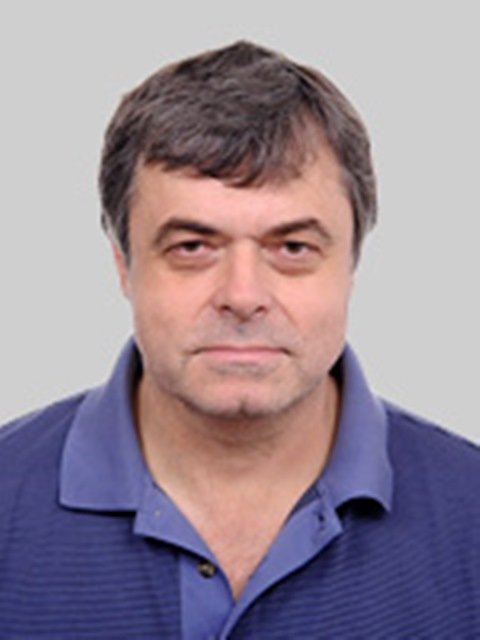WW2 'mines' threaten global politics
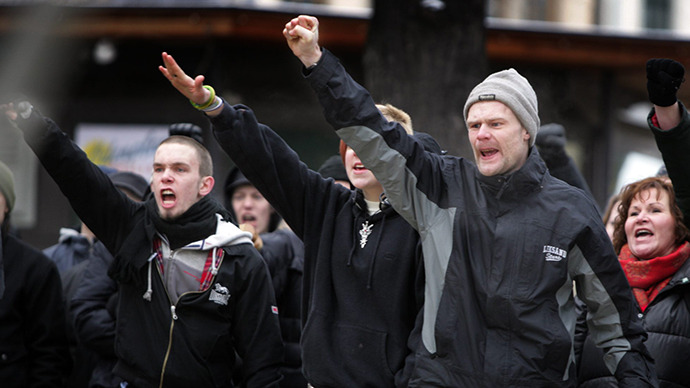
History is not past in the past, but past in the present, said English poet T.S. Elliot. Sixty eight years after the Second World War ended its echo is heard in the turbulent environment of global politics and daily life around the globe.
Every Victory Day, the day Russians celebrate the defeat of Nazism, is not only another defining moment to commemorate the millions of WWII victims and to lay wreaths to the war monuments, scattered all over Europe, vast territory of the former Soviet Union. It is also a time, at which we draw the lessons from the past and try to put a full stop in the decades-long debate on who was on the right side of history and who was on the wrong. And, respectfully, who owes whom (and what, if anything) to finally settle the score and the bills of history.
The history of the Second World War still hurts. It explodes in many ways – by creating new dangerous, divisive myths in the relationship between neighbors and reproducing old hatreds in modern societies. Each region of the world has its own set of explosive devices, inherited from the bloodiest war in human history. Therefore, let us roughly identify them as “West European”, “post-Soviet” and Asia-Pacific”.
As for Western Europe, Germany, which unequivocally denounced fascism in 1945, is again in the news (don’t get surprised). This time it is over the reincarnation of Aryan supremacy ideas, promoted by the ideologists of the Third Reich and these days manifested by the young followers of classical WWII Nazi, trying to fit into the present-day reality of pacifist Germany.
It is highly symbolic, that this year the Victory Day anniversary coincided with the opening of the trial in Munich of a group of ultra-right wing thugs calling themselves the National Socialist Underground (NSU) accused of a hate crime killing spree. The chief defendant, is 38-old Beate Zschape and is one of three charged with the murder of eight ethnic Turks, a Greek immigrant and a German policewoman between 2000 and 2007. It is reported the NSU's accidental discovery in November 2011 has already forced Germany to reassess the lessons the country has learnt from her Nazi past.
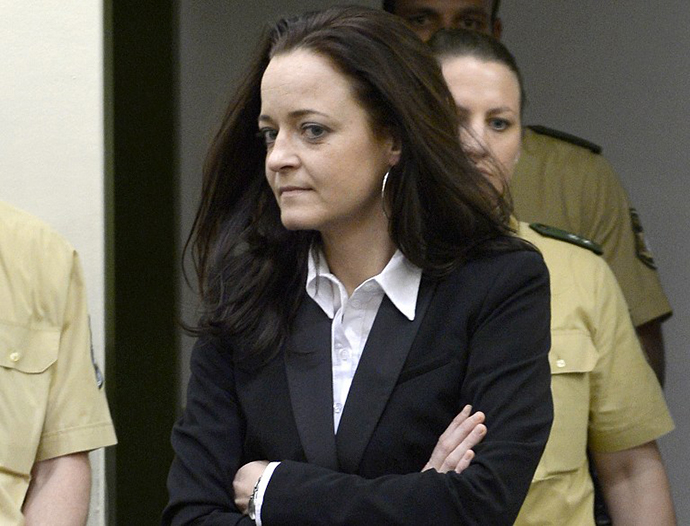
However, when it comes to Western Europe the problem of neo-Nazi is not restricted to Germany. It is an open secret that ultra-right forces are on the rise, with their popularity growing, allowing them to contest seats in local and European parliament elections. As during the Second World War there is a high temptation to pin the entire gamut of problems, related to looming economic crisis and eroding European identity on outsiders – immigrants from the troubled Eastern world, “people with dark skin”, “second rate humans.” So, this is a WWII time bomb which is ticking in modern Europe.
Meantime, former Soviet countries have to defuse its own explosive devices of the war history. It is not only about annual Waffen-SS veterans marches through Riga the capital of EU member Latvia. After the disintegration of the Soviet Union – the country which once crushed fascism, it turned out that the Great Victory cements newly-independent states no more. Some of the former Soviet republics in their new search for self-identity proved to be the countries with an unpredictable past. Moreover, by depriving their nations of the right to celebrate the victory over fascism, local ruling elites are trying to lay the foundation for new “post-Soviet patriotism”.
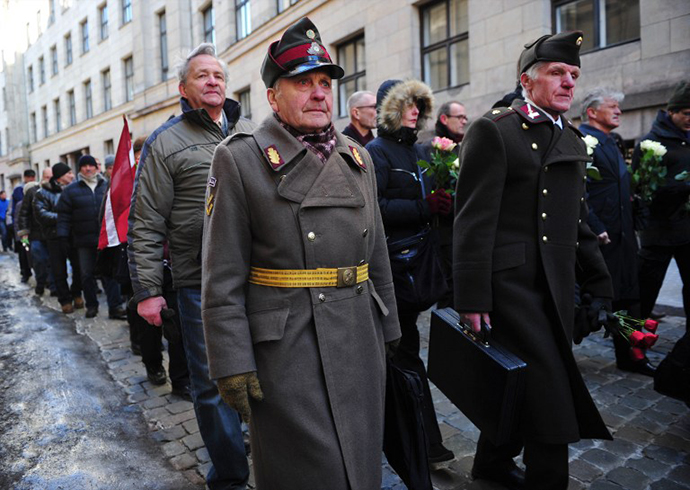
No surprise, that the mayor of Ukrainian city of Lviv Andrei Sadovy called V-Day a tragedy to commemorate “the victims of Nazi and communist terror”, thus, equalizing the two confronting forces of WWII. It is reported that this year there will be no celebrations in Lviv – one of the most beautiful East European cities. So, this is another mine of history, laid under the foundation of Russian-Ukrainian relations. And I don’t think that anybody has forgotten about a tragedy of Katyn involving Poles, Germans and Soviets, with emotions running and disagreements flaring up again.
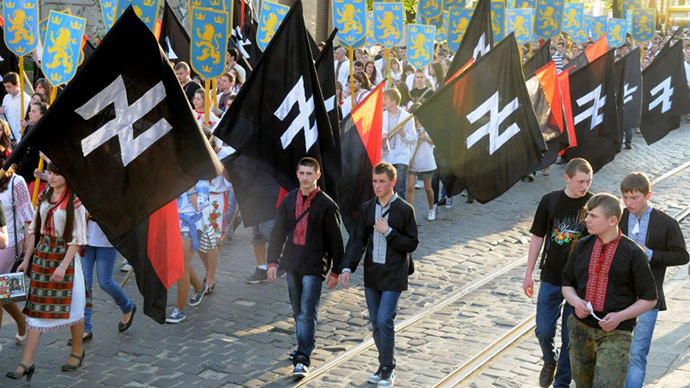
And finally, the mines of WWII are ticking in the Far East far beyond Russia’s borders. As Japanese politicians are visiting the Yasukuni temple – a controversial Tokyo shrine to commemorate millions of soldiers killed in Japanese wars, Japan’s neighbors – China and South Korea warn of the possible revival of a new Japanese nationalism. This year 168 Japanese ruling and opposition party lawmakers paid tribute at the shrine – it was the largest group of politicians ever to visit the Yasukuni temple. No surprise, that Beijing and Seoul protested, with China’s Foreign Ministry spokeswoman Hua Chunying saying that Japan's actions "merit vigilance by its Asian neighbors and the international community."
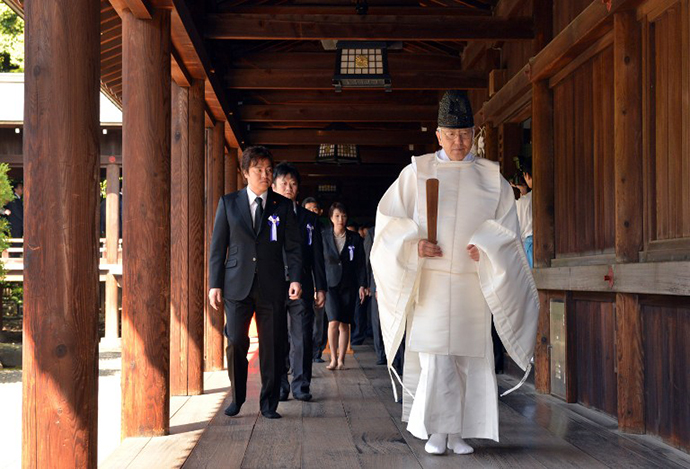
In its clouded relations with South Korea Japan has not yet settled the problem of the compensation for the Korean women, used for Japanese WWII brothels as sex slaves.
An in addition to that, Tokyo is still in disagreement with Moscow over Peace Treaty, which is still not signed due to the disagreement over the Kuril Islands.
This is another mine of WWII history – this time on the Pacific shore, thousands of miles away from Moscow and Berlin. So it is high time to de-mine the history the way the emergency services in Russia, acting with extreme caution, de-mine corroded WWII bombs and shells, still found during excavation works – sinister parcels from the past.
Looking around at the present day war and peace situation one
feels an urgent necessity to de-mine the last war’s mines and to be
watchful about the new ones being daily planted all around the
world right now.
The statements, views and opinions expressed in this column are solely those of the author and do not necessarily represent those of RT.
The statements, views and opinions expressed in this column are solely those of the author and do not necessarily represent those of RT.
